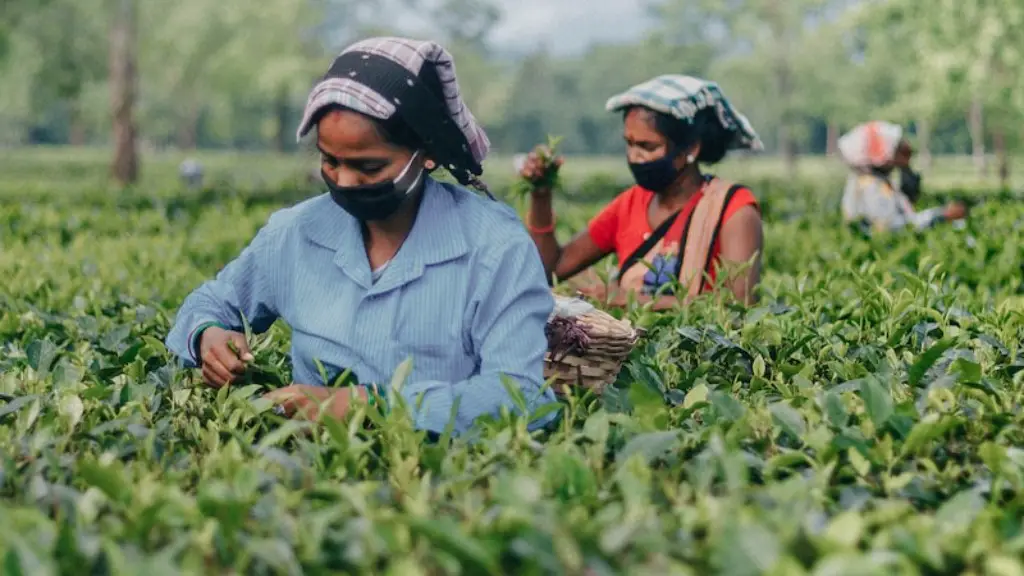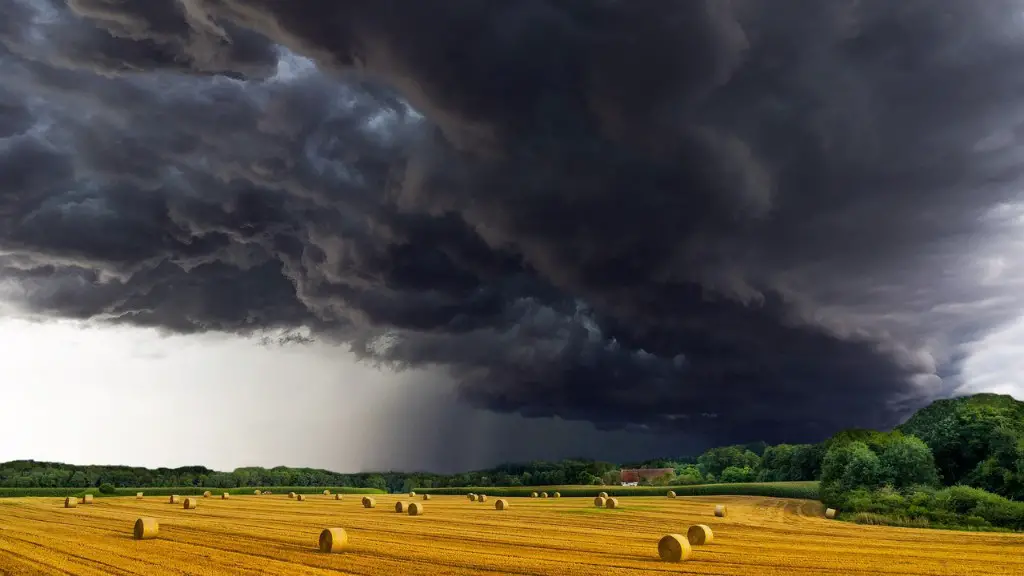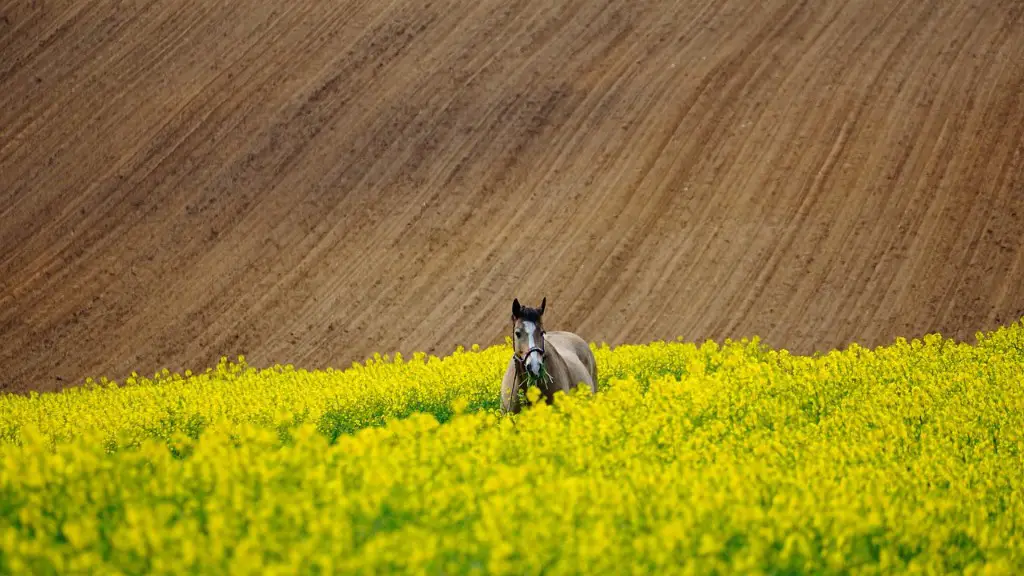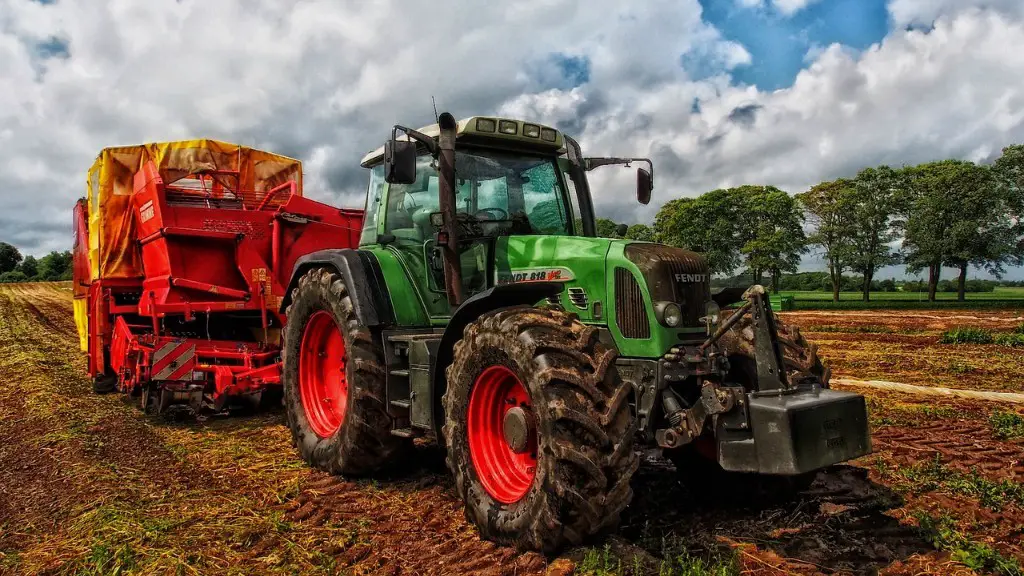The rise of industrial agriculture has impacted the world in many ways. It has increased food production, but has also led to environmental problems such as soil erosion and water pollution. Industrial agriculture has also changed the way that people live and work, as more people are employed in the agricultural sector.
The rise of industrial agriculture had a profound impact on the world. It transformed the way food was produced and distributed, and had a wide-ranging impact on the environment, economy and society.
Industrial agriculture is a system of intensive crop production and animal husbandry that is characterized by the use of technological advances, chemical inputs and large-scale monoculture production. This type of agriculture has come to dominate food production in many parts of the world, especially in developed countries.
The rise of industrial agriculture has had a number of significant impacts.
On the environment, industrial agriculture has contributed to soil depletion and degradation, water pollution, land degradation and deforestation. It has also been a major source of greenhouse gas emissions, contributing to climate change.
On the economy, industrial agriculture has led to the consolidation of the food industry, with a few large companies dominating the market. This has resulted in higher food prices and less competition.
On society, the rise of industrial agriculture has resulted in the displacement of small-scale farmers, as well as the migration of rural laborers to urban areas in search of work. This has led to increased insecurity and inequality, as well as social and environmental justice issues.
What is the impact of industrial agriculture?
Industrial agriculture is a leading cause of human-related emissions fueling climate change, a major source of both water and air pollution, and the principal cause of antibiotic resistance and pesticide toxicity. These problems are all linked to the way that industrial agriculture is typically practiced, with an emphasis on large-scale monoculture production, heavy use of synthetic fertilizers and pesticides, and confinement of animals in factory farms. To address these issues, we need to move away from industrial agriculture and towards more sustainable and regenerative farming practices.
Agricultural contaminants, including pesticides, nitrates, and phosphorus, impact ground and surface water quality, affecting both urban and rural communities. Synthetic fertilizers deplete soil health and require intensive use of fossil fuels to produce.
Agricultural chemicals can runoff from fields and contaminate groundwater and surface water. This can impact drinking water quality and also the quality of water used for irrigation. In addition, these chemicals can harm aquatic life and degrade the quality of water for recreation.
To protect water quality, farmers can use best management practices such as creating buffer zones between fields and waterways, using cover crops, and practicing precision agriculture. Urban areas can also take measures to reduce runoff from stormwater and protect water quality.
What are 3 benefits of industrial agriculture
Industrial agriculture is a type of farming that uses modern technology and equipment to process meat, eggs, milk, crops, and other food items in a quick and efficient way. This type of agriculture reduces overhead expenses while earning more revenue and profits, which in turn lowers food costs.
The Industrial Revolution was a period of time in the late 18th century and early 19th century when many changes took place in the way products were manufactured. This period saw a shift from an agrarian economy, where products were made by hand, to a manufacturing economy, where products were made by machines. This led to increased production and efficiency, lower prices, more goods, improved wages, and migration from rural areas to urban areas.
What were 4 impacts of industrialization?
Industrialization has led to economic prosperity, but it has also resulted in more population, urbanization, and stress on the basic life supporting systems. This has pushed the environmental impacts closer to the threshold limits of tolerance.
The result is that agriculture globally exerts increasing pressure on the land and water resources of the earth, which often results in land degradation (such as soil erosion and salinization), and eutrophication Agriculture is also associated with greenhouse gas emissions (Kirchmann and Thorvaldsson 2000).
How did the rise of industrial agriculture impact the world quizlet?
It is undeniable that the Agricultural Revolution had a profound impact on the world. Not only did it lead to population growth, but it also increased food supplies and caused farmers to lose and seek other work. While the Agricultural Revolution had many positive effects, it also had some negative ones. For instance, the loss of farmland and the displacement of farmers led to social and economic upheaval. Nonetheless, the Agricultural Revolution was a pivotal moment in history that changed the way the world operated.
The term “agricultural revolution” is used to describe a period of radical change in agriculture. This period of change is characterized by the adoption of new technologies and practices that result in increased productivity. Agricultural revolutions have had a profound impact on human society, resulting in the invention of the first cities, the development of industry, and a massive increase in the human population.
How does industrial agriculture impact climate change
The industrial agriculture industry is a significant source of greenhouse gas emissions in the United States. Farm equipment emits carbon dioxide as vehicles move across fields during tilling, planting, pesticide and fertilizer applications, and harvest. These activities contribute to the overall emissions tally for the agriculture industry. Reducing emissions from agriculture will require a concerted effort to improve efficiencies and adopt practices that minimize greenhouse gas emissions.
Agricultural technologies and production practices have improved significantly over time, resulting in increased crop production with less energy and water use, and fewer greenhouse gas emissions per unit of output. These improvements have helped make the United States a leader in food production, with crop production now twice what it was in 1970.
What is an example of industrial agriculture?
Industrial agriculture is a term used to describe a type of modern farming that relies heavily on mechanization, technology, and synthetic inputs. This approach to agriculture has allowed for farmers to achieve greater efficiency and productivity, but it has also come with some trade-offs.
Critics of industrial agriculture argue that it has led to the loss of traditional farming knowledge and skills, the overuse of resources like water and fossil fuels, and the emergence of new environmental problems like soil erosion and water pollution.
Industrial Agriculture is a type of farming that involves the large-scale production of crops and animals. This type of farming often uses chemical fertilizers on crops or the routine use of antibiotics in animals. The use of antibiotics in animals is often done in order to compensate for the filthy conditions that the animals are kept in.
What were some positive effects of the Industrial Revolution on agriculture
The development of new technology, including chemicals and larger tractors, allowed farmers to work larger areas of land with less labor. Government policies encouraged farmers to scale up their operations. Farmers were also motivated by economies of scale—the economic advantage of producing larger numbers of products.
The sustained growth of non-agricultural employment and the transfer of part of the rural labour force to the towns have made it possible to stabilize the number of agricultural workers and halt the growth of population pressure on the land, thus creating the conditions for improved labour productivity and peasant incomes. In the long run, these trends will help to reduce inequality and poverty in rural areas.
What was the global impact of Industrial Revolution?
The Industrial Revolution definitely had a huge impact on communities and culture. It changed the way people lived and worked, and led to the growth of cities. It also had a big impact on extended family communities in villages. These communities were often destroyed by the move to cities, and the family support systems that they provided were no longer as strong. This can be a really big problem for people who are trying to eke out a living in the city.
The benefits of industrialization typically fall into four categories: economic growth, improved standard of living, improved medical care, and global reach.
Economic growth is the most commonly cited benefit of industrialization. As countries industrialize, they typically see increases in gross domestic product (GDP), which leads to more money circulating in the economy. This, in turn, can lead to higher standards of living as people have more money to spend on goods and services.
Improved medical care is another often-cited benefit of industrialization. As countries industrialize and their GDPs grow, they tend to spend more on healthcare. This can lead to better medical care for citizens, as well as a general increase in life expectancy.
Global reach is another benefit of industrialization. As countries industrialize, they typically become more interconnected with the global economy. This can lead to new trade opportunities and increased foreign investment.
However, it is important to note that industrialization can also have some negative effects, such as increased income inequality and potentially hazardous working conditions.
Conclusion
The rise of industrial agriculture has had a profound impact on the world. It has led to the displacement of small farmers, the loss of traditional knowledge and techniques, and the destruction of natural habitats. It has also contributed to global warming and the depletion of water resources.
The rise of industrial agriculture has had a profound impact on the world. It has led to the mass production of food, the growth of the food industry, and the development of new technologies and techniques for the production of food. It has also had a major impact on the environment, both in terms of the pollution it has caused and the loss of natural habitats that it has resulted in.





